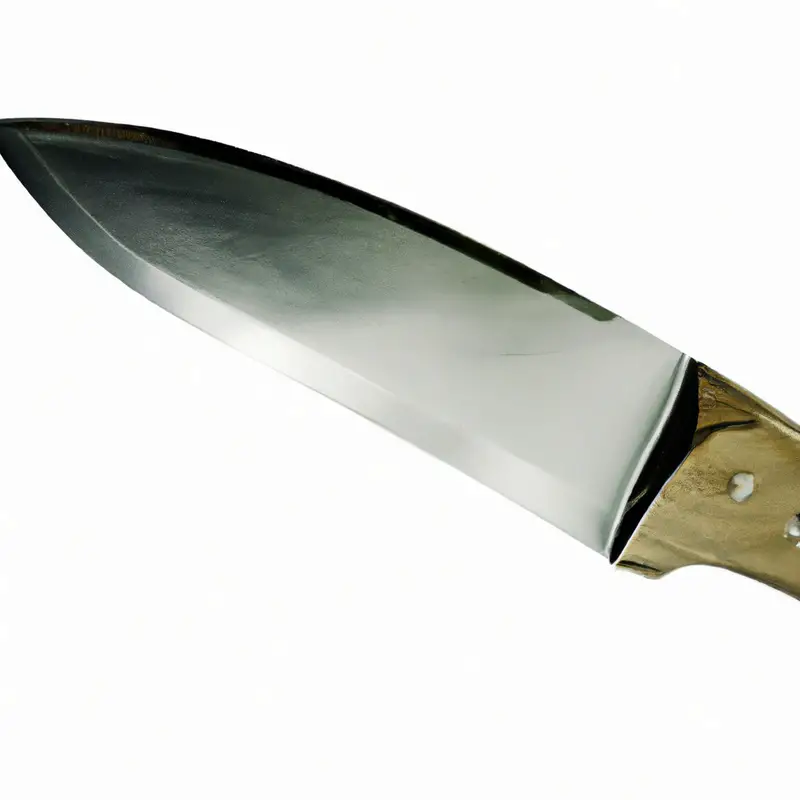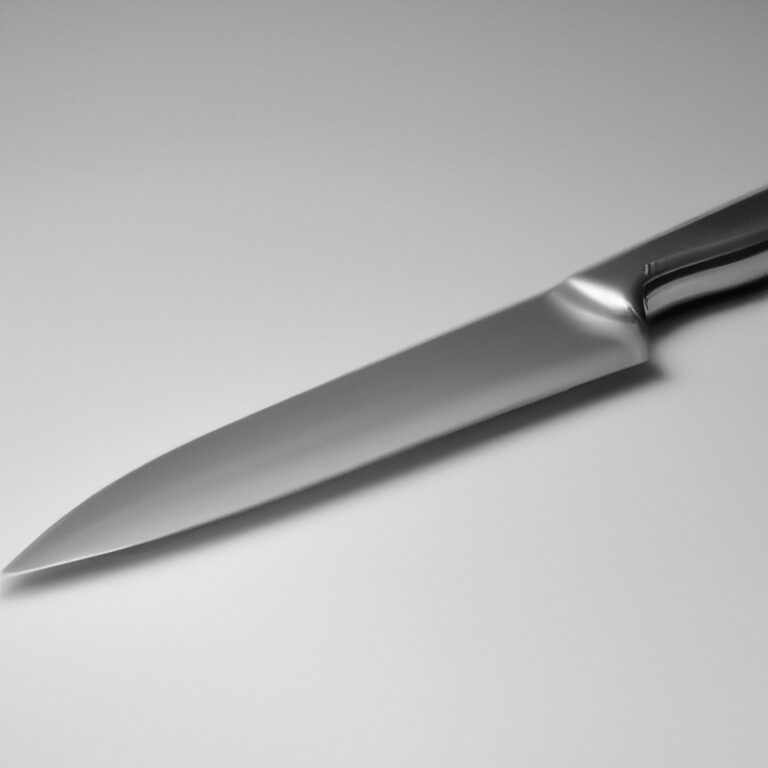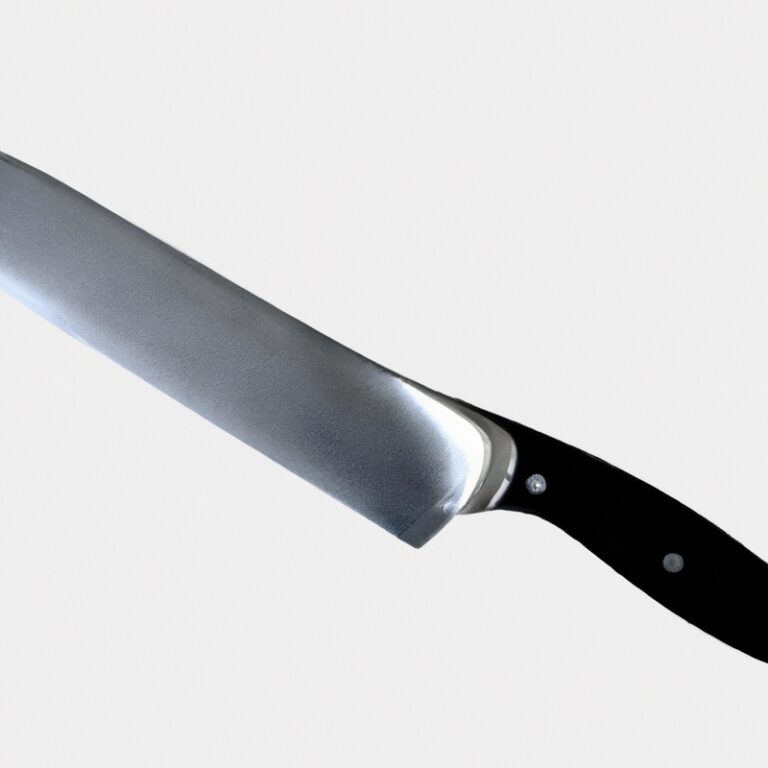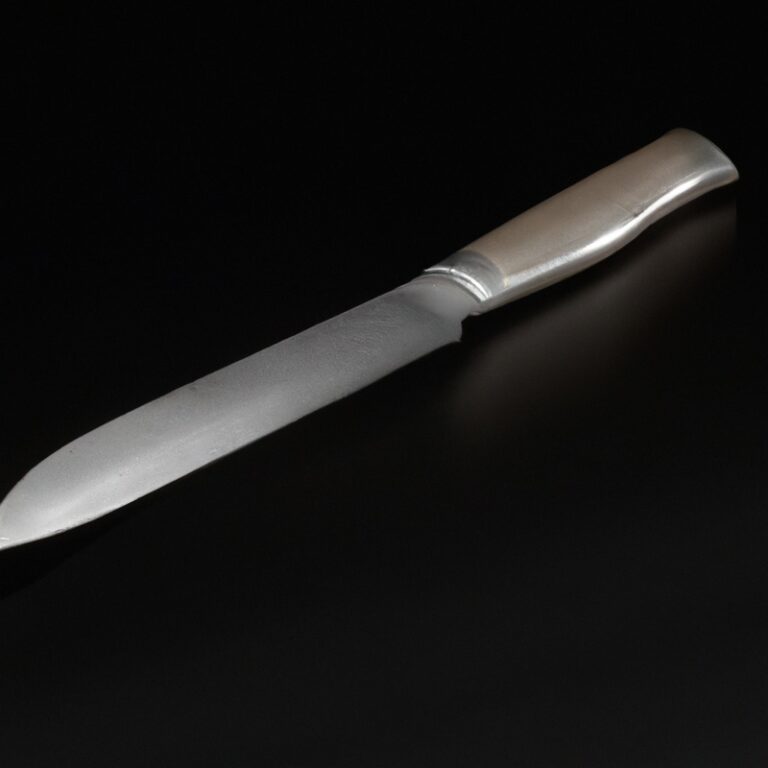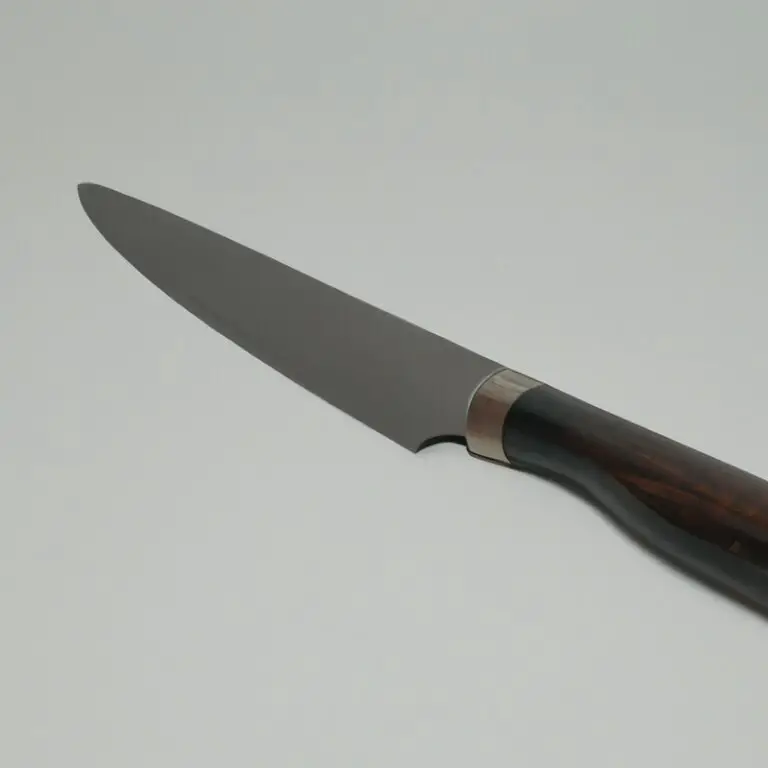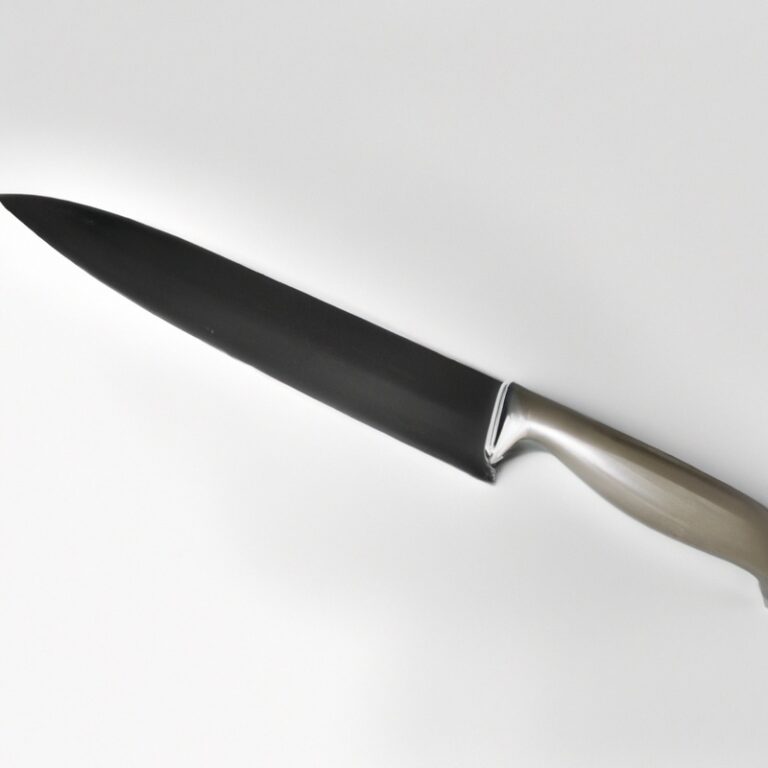What Is The Role Of Chromium In Stainless Damascus Steel?
Key Takeaways:
- Chromium enhances the corrosion resistance of stainless Damascus steel.
- The presence of chromium contributes to the formation of a protective oxide layer on the steel’s surface.
- Chromium also improves the steel’s strength and toughness.
- Proper chromium content is crucial for achieving desired properties in stainless Damascus steel.
Hey there! Have you ever wondered what makes stainless Damascus steel so resilient and stunning?
Well, let me tell you, it’s all about the power of chromium.
You might be thinking, what’s the big deal about this element?
But trust me, chromium plays a crucial role in shaping the exceptional properties of stainless Damascus steel.
It’s the secret ingredient that enhances toughness, strength, and corrosion resistance.
Not only that, but it also prevents staining and rusting.
However, there are some challenges associated with excessive chromium content that we’ll explore too.
So, fasten your seatbelts, and let’s dive into the world of chromium in stainless Damascus steel!
| Chromium | Role in Stainless Damascus Steel |
|---|---|
| Essential Element | Enhances corrosion resistance |
| Forms a Protective Layer | Creates a passive film to prevent oxidation |
| Improves Hardness | Contributes to the strength and toughness of the steel |
| Promotes Martensitic Transformation | Aids in the formation of martensite, inhibiting grain growth |
Understanding chromium in stainless Damascus steel
Importance and role of chromium in stainless Damascus steel
Chromium plays a vital role in stainless Damascus steel, contributing to its overall quality and performance.
- It enhances the steel’s resistance to corrosion, making it more durable and long-lasting.
- Chromium also increases the steel’s hardness and strength, improving its ability to withstand impact and retain sharpness.
- Furthermore, chromium helps prevent staining, rusting, and other forms of corrosion, ensuring the blade maintains its appearance over time.
Overall, chromium is an essential element in stainless Damascus steel, playing a crucial role in its overall performance and durability.
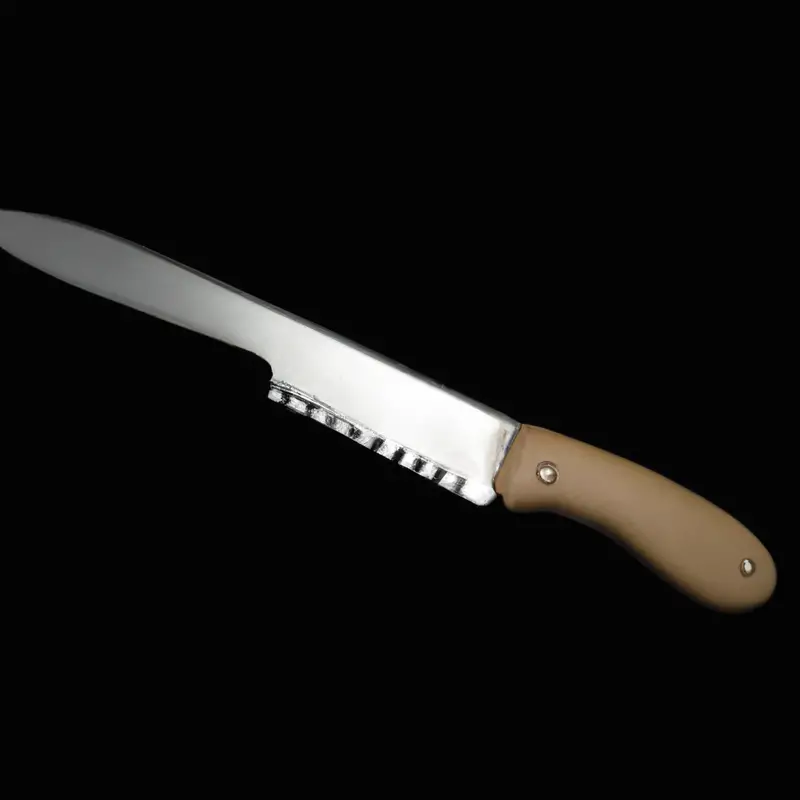
Chromium’s impact on the corrosion resistance of stainless Damascus steel
Chromium plays a crucial role in enhancing the corrosion resistance of stainless Damascus steel.
Its presence forms a protective oxide layer on the surface of the steel, which helps to prevent staining, rusting, and corrosion.
By incorporating chromium into the steel, it becomes more resistant to the damaging effects of moisture and exposure to various elements.
This ensures that the Damascus steel remains durable and maintains its aesthetic appeal over time.
The higher the chromium content in the steel, the better the corrosion resistance it offers.
So, chromium is a key element in creating stainless Damascus steel that can withstand corrosion and last for generations.
Chromium’s contribution to the hardness and strength of stainless Damascus steel
Chromium plays a vital role in enhancing the hardness and strength of stainless Damascus steel.
Its presence in the alloy helps to form a protective oxide layer on the surface of the steel, which increases its resistance to wear and corrosion.
Additionally, chromium forms solid solution strengthening elements with iron, which contributes to the overall hardness and strength of the steel.
This ensures that the stainless Damascus steel can withstand high impact and maintain its sharpness for longer periods, making it a reliable choice for various cutting applications.
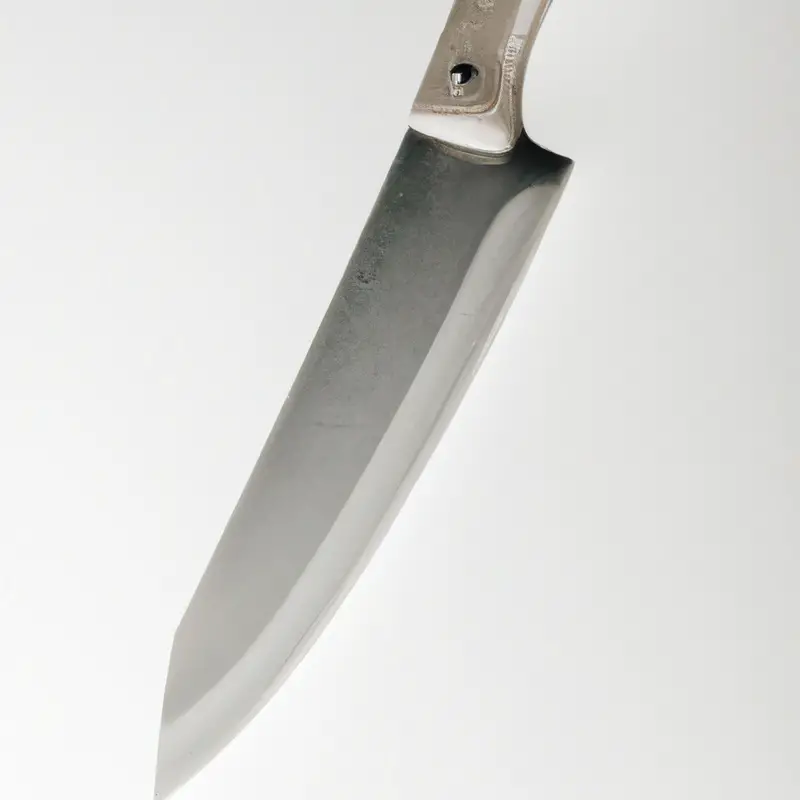
Chemical composition of stainless Damascus steel
Elements present in stainless Damascus steel apart from chromium
In stainless Damascus steel, apart from chromium, there are other elements present that contribute to its unique properties. These elements include carbon, which enhances hardness and wear resistance, and nickel, which improves toughness and corrosion resistance.
Manganese is also present, aiding in the formation of a stable oxide layer on the surface, while molybdenum enhances strength and corrosion resistance.
Other elements like vanadium, tungsten, and cobalt may also be included in varying amounts, providing additional hardness, toughness, and edge retention. These elements work together to create a high-performance steel with exceptional qualities.
Chromium content in stainless Damascus steel and its variations in different grades
The chromium content in stainless Damascus steel can vary depending on the specific grade. Typically, stainless Damascus steel contains chromium in the range of 13% to 17%.
This chromium content is crucial for the steel’s corrosion resistance and durability.
It forms a protective oxide layer on the surface of the steel, preventing staining, rusting, and corrosion. Different grades may have variations in chromium content to optimize different properties, such as hardness and toughness.
It’s important to choose the appropriate grade of stainless Damascus steel based on your specific needs and preferences.
Properties enhanced by chromium in stainless Damascus steel
Impact of chromium on the blade’s toughness and durability
Chromium plays a crucial role in enhancing the toughness and durability of stainless Damascus steel blades.
It improves the steel’s resistance to wear, making it less likely to chip or break during use.
Additionally, chromium helps to mitigate the formation of micro-cracks in the blade, which can further enhance its strength and lifespan.
By incorporating chromium into the alloy, manufacturers can create blades that are tough, durable, and capable of withstanding rigorous use.
This makes stainless Damascus steel an excellent choice for those in need of a reliable and long-lasting blade.
Chromium’s effect on enhancing the blade’s edge retention
Chromium plays a crucial role in enhancing the edge retention of stainless Damascus steel blades.
It forms carbides that help strengthen the blade, making it resistant to wear and maintaining its sharpness for longer periods.
This means that the blade will stay sharp even with repeated use, reducing the need for frequent sharpening.
As a result, stainless Damascus steel blades with high chromium content are highly valued for their edge retention capabilities, making them ideal for various cutting tasks.
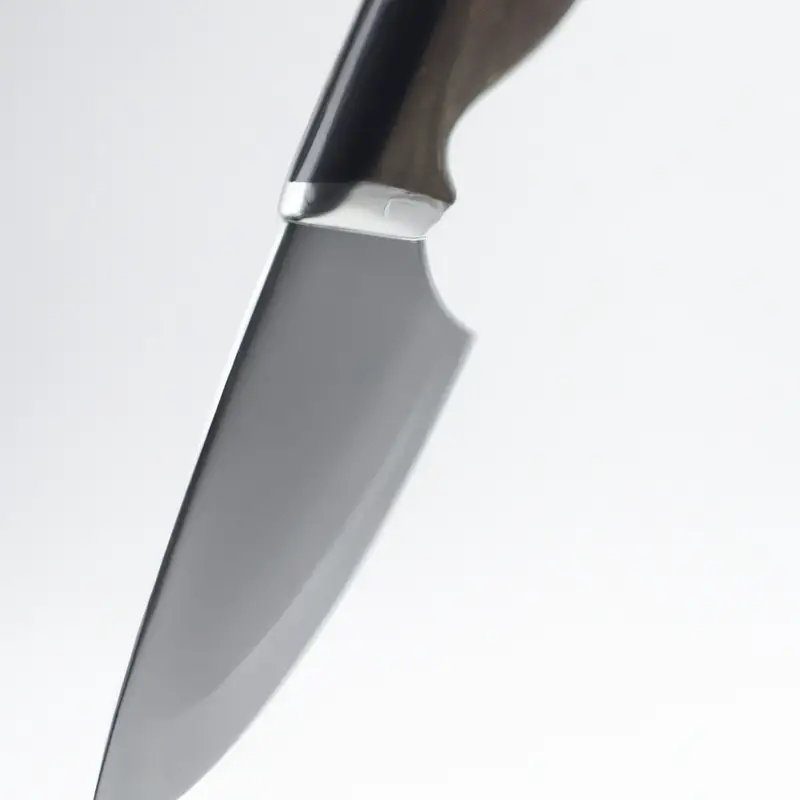
Role of chromium in preventing staining, rusting, and corrosion
Chromium plays a vital role in preventing staining, rusting, and corrosion in stainless Damascus steel.
Its presence forms a protective layer on the surface of the steel, making it resistant to these damages.
This layer, known as a passive film, acts as a barrier against moisture and corrosive substances, preventing them from reaching the underlying metal.
The chromium content in stainless Damascus steel significantly improves its resistance to tarnishing, rusting, and corrosion, ensuring that the steel remains durable and maintains its aesthetic appeal over time.
Challenges related to chromium in stainless Damascus steel
Risk of excessive chromium content in stainless Damascus steel
Excessive chromium content in stainless Damascus steel can pose certain risks. One of the main concerns is the formation of chromium carbides, which can lead to reduced corrosion resistance and weakened blade strength.
Additionally, an excessive amount of chromium can affect the hardness and toughness of the steel, making it more brittle and prone to cracking or chipping.
It is important to maintain the optimal chromium content in order to ensure the best balance of properties in stainless Damascus steel.
Potential issues with chromium carbide precipitation in stainless Damascus steel
Chromium carbide precipitation can be a potential issue in stainless Damascus steel. When the steel is heated to high temperatures during the forging process, chromium and carbon can combine to form chromium carbides.
These carbides can reduce the amount of chromium available in the steel, decreasing its corrosion resistance.
Additionally, chromium carbides can make the steel more susceptible to cracking and brittleness. To minimize this issue, proper heat treatment is essential, including controlled cooling to prevent excessive carbide formation.
Regular testing and quality control can help ensure the optimal balance of chromium in stainless Damascus steel.
Final Verdict
Chromium plays a vital role in stainless Damascus steel. Its presence enhances the corrosion resistance, hardness, and strength of the steel.
It also contributes to the blade’s toughness, durability, and edge retention.
However, it is essential to be cautious about excessive chromium content as it can lead to brittleness and potential issues with carbide precipitation. Overall, chromium is a key element that significantly improves the performance and longevity of stainless Damascus steel blades.
With its proper utilization, we can achieve exceptional quality and reliability in our knives.

